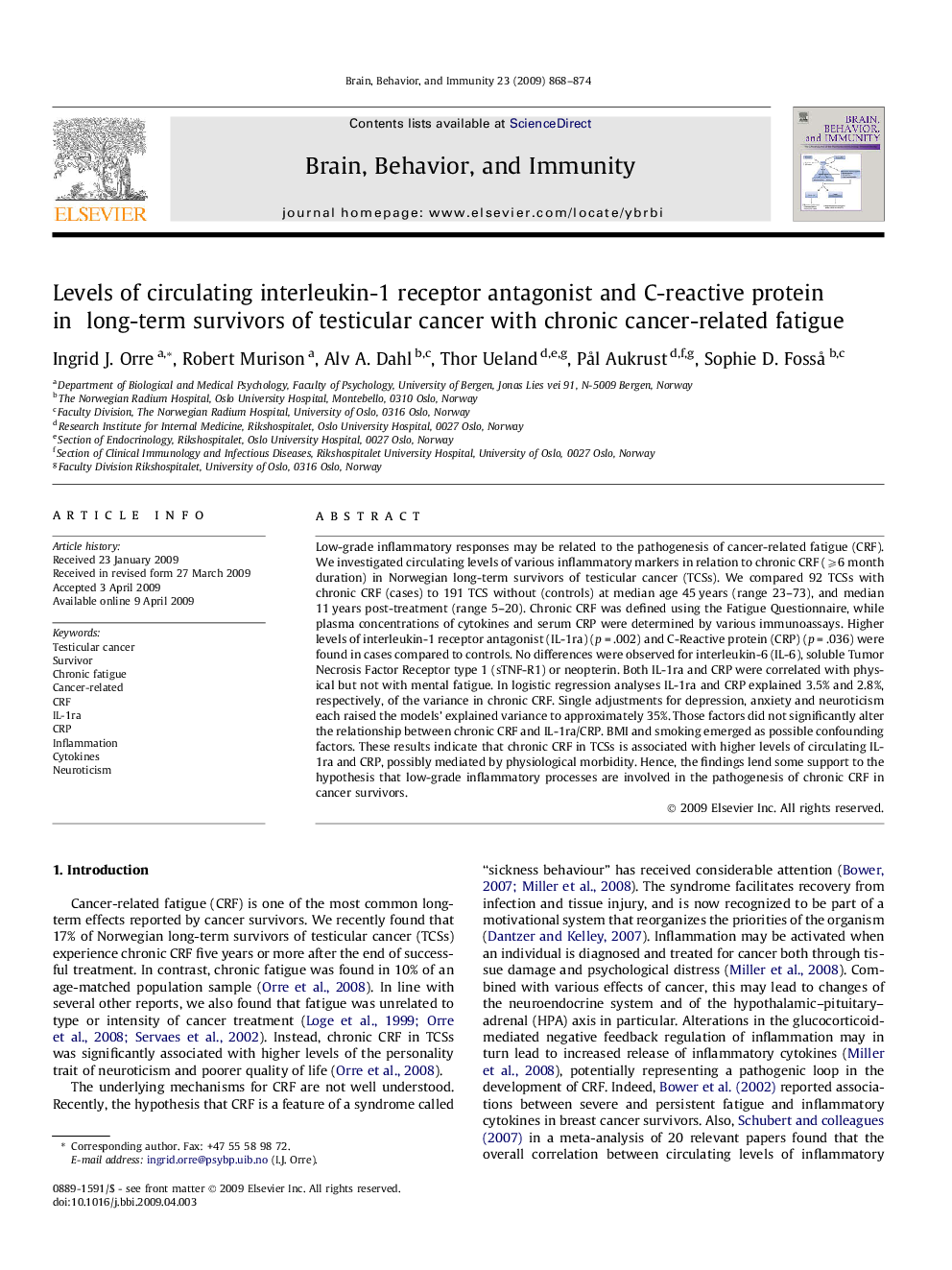| Article ID | Journal | Published Year | Pages | File Type |
|---|---|---|---|---|
| 10455058 | Brain, Behavior, and Immunity | 2009 | 7 Pages |
Abstract
Low-grade inflammatory responses may be related to the pathogenesis of cancer-related fatigue (CRF). We investigated circulating levels of various inflammatory markers in relation to chronic CRF (⩾6 month duration) in Norwegian long-term survivors of testicular cancer (TCSs). We compared 92 TCSs with chronic CRF (cases) to 191 TCS without (controls) at median age 45 years (range 23-73), and median 11 years post-treatment (range 5-20). Chronic CRF was defined using the Fatigue Questionnaire, while plasma concentrations of cytokines and serum CRP were determined by various immunoassays. Higher levels of interleukin-1 receptor antagonist (IL-1ra) (p = .002) and C-Reactive protein (CRP) (p = .036) were found in cases compared to controls. No differences were observed for interleukin-6 (IL-6), soluble Tumor Necrosis Factor Receptor type 1 (sTNF-R1) or neopterin. Both IL-1ra and CRP were correlated with physical but not with mental fatigue. In logistic regression analyses IL-1ra and CRP explained 3.5% and 2.8%, respectively, of the variance in chronic CRF. Single adjustments for depression, anxiety and neuroticism each raised the models' explained variance to approximately 35%. Those factors did not significantly alter the relationship between chronic CRF and IL-1ra/CRP. BMI and smoking emerged as possible confounding factors. These results indicate that chronic CRF in TCSs is associated with higher levels of circulating IL-1ra and CRP, possibly mediated by physiological morbidity. Hence, the findings lend some support to the hypothesis that low-grade inflammatory processes are involved in the pathogenesis of chronic CRF in cancer survivors.
Related Topics
Life Sciences
Immunology and Microbiology
Immunology
Authors
Ingrid J. Orre, Robert Murison, Alv A. Dahl, Thor Ueland, Pål Aukrust, Sophie D. Fosså,
